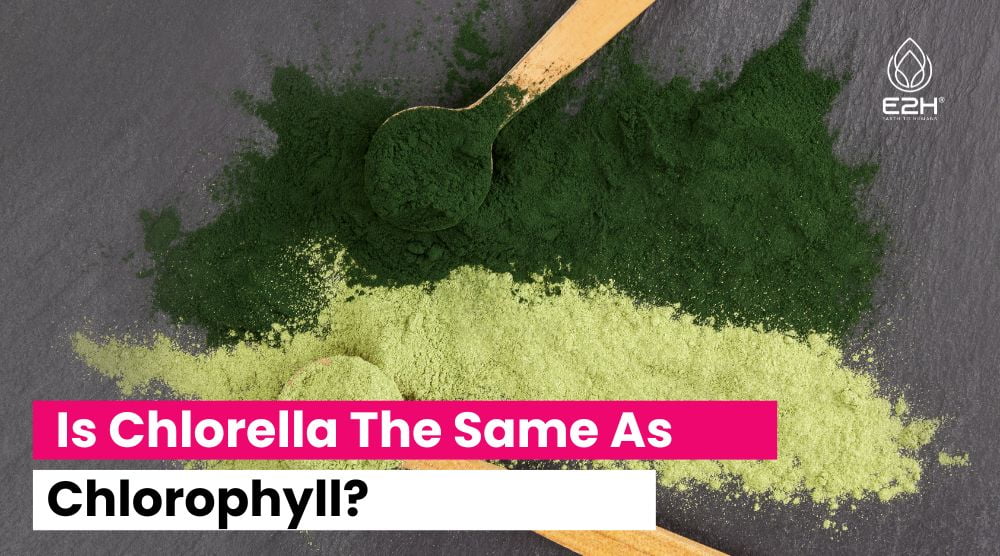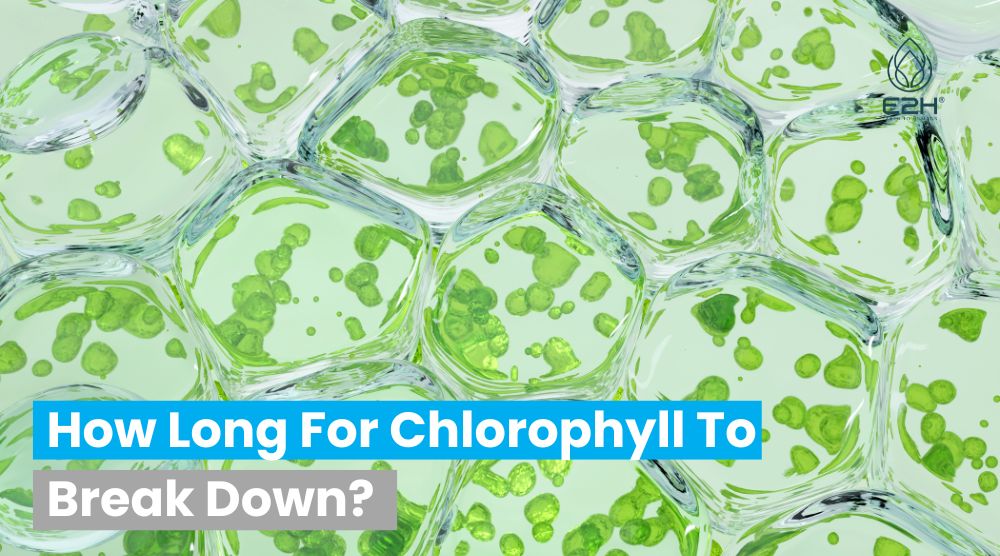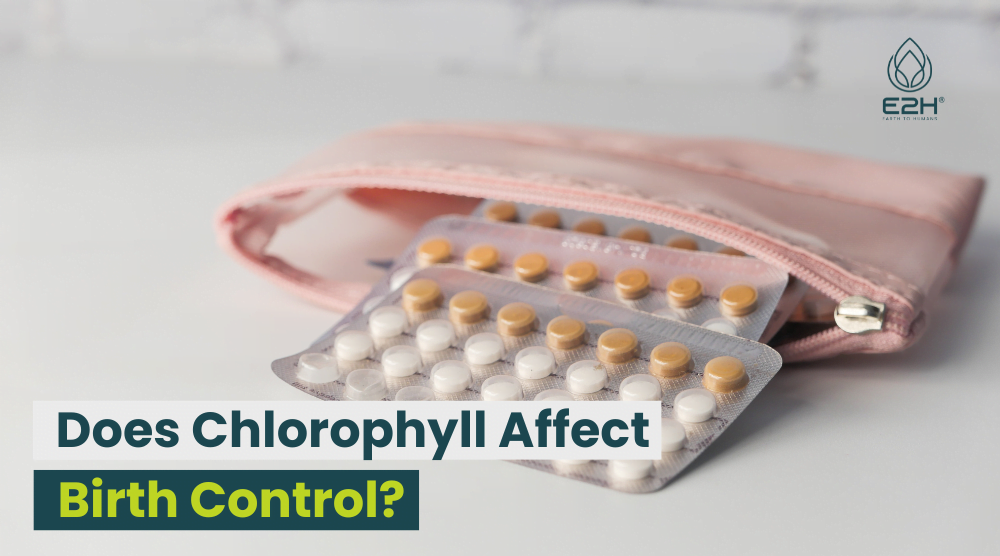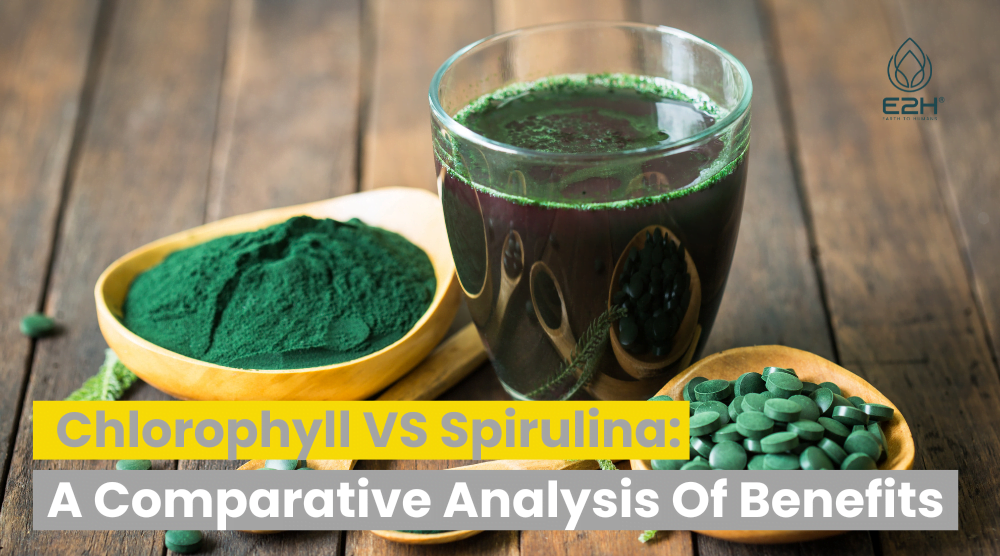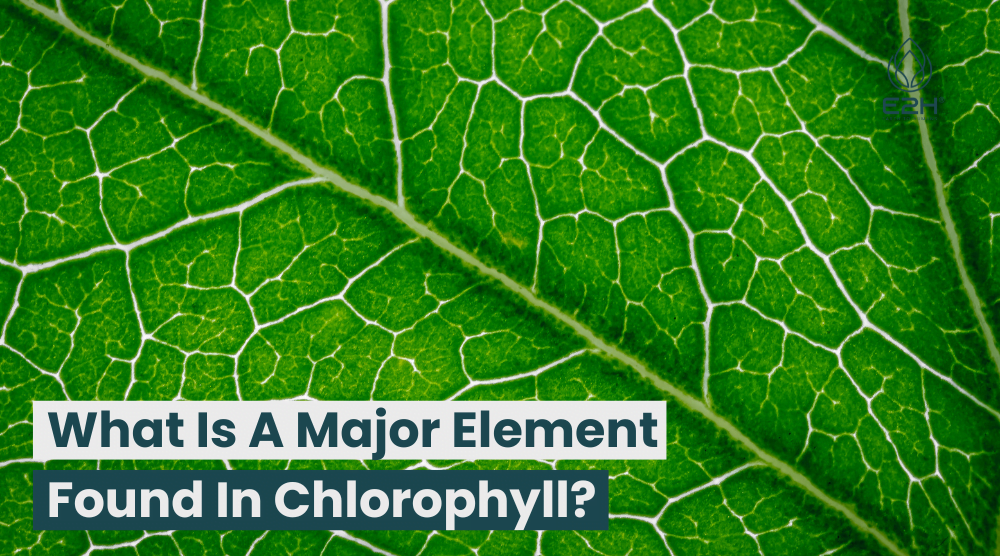So, if you were wondering, “Is Chlorella The Same As Chlorophyll?” the answer is a definitive no, chlorella and chlorophyll are not the same. Chlorella is a type of freshwater algae, while chlorophyll is a green pigment found in plants, algae, and cyanobacteria.
What is Chlorella?
Chlorella is a type of freshwater algae that belongs to the family Chlorellaceae. It is a single-celled organism that is green in color due to the presence of chlorophyll, the pigment that gives plants their green color. Chlorella is known for its high nutrient content, including protein, vitamins, minerals, and antioxidants.
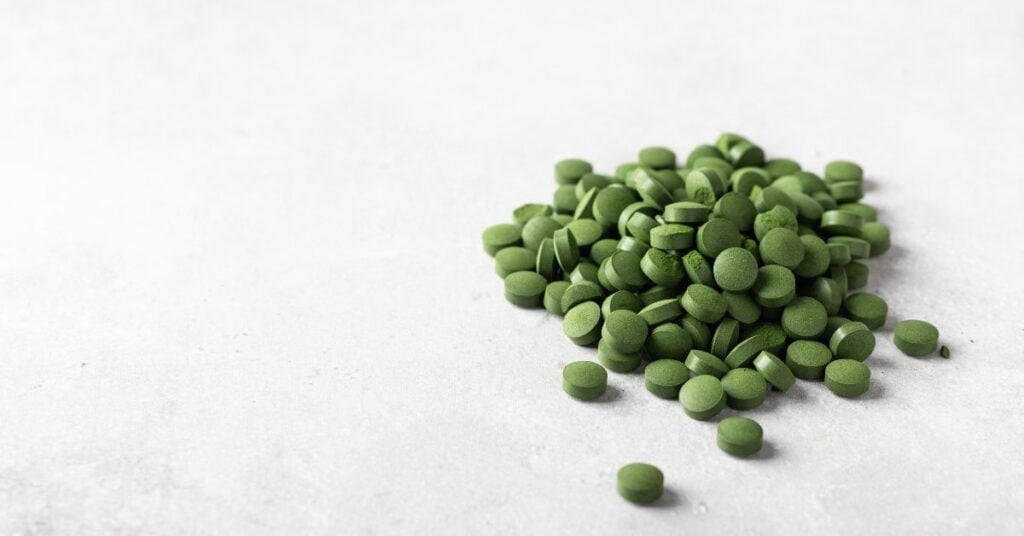
It is often consumed as a dietary supplement for its detoxifying and antioxidant properties and potential health benefits. Chlorella has been studied for its potential to improve immune function, lower cholesterol levels, and reduce the risk of chronic diseases such as cancer and heart disease.
What is Chlorophyll?
Chlorophyll is a green pigment found in plants, algae, and cyanobacteria. It is essential for photosynthesis, the process by which plants convert sunlight into energy. Chlorophyll is responsible for capturing light energy and converting it into chemical energy that can be used by the plant.
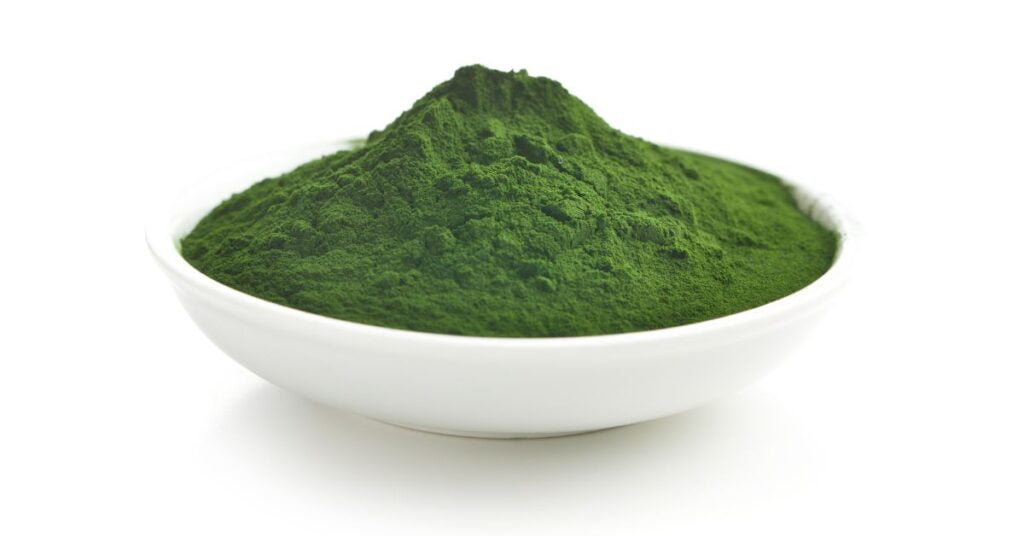
Chlorophyll is also known for its powerful antioxidant and anti-inflammatory properties & essential amino acids which may have potential health benefits for humans. It is commonly consumed as a dietary supplement and added to cosmetic and oral care products as a natural food coloring.
Is chlorella the same as chlorophyll?
No, chlorella and chlorophyll are not the same. Although chlorella contains chlorophyll, they are two distinct substances with different properties and functions.
Chlorella is a type of freshwater algae that is a rich source of many high concentrations nutrients in, including protein, vitamins, minerals, and antioxidants. It is often consumed as a dietary supplement for its potential health benefits, such as supporting immune function, detoxifying the body, and reducing the risk of chronic diseases. Chlorella has a tough cell wall that makes it difficult for the body to digest, so it is often processed into tablets, capsules, or powder to increase its bioavailability.
Chlorophyll, on the other hand, is a green pigments found in plants, algae, and cyanobacteria. It is essential for photosynthesis, the process by which plants convert sunlight into energy. Chlorophyll is responsible for capturing light energy and converting it into chemical energy that can be used by the plant. Chlorophyll is also known for its powerful antioxidant and anti-inflammatory properties, which may have potential health benefits for humans.
In summary, while chlorella contains chlorophyll, it is a distinct substance with its own unique properties and functions. Chlorella is consumed as a diet supplement for its high nutrient content, while chlorophyll is often added to supplements own food, cosmetics, and oral care products as a natural food coloring and for its potential health benefits.
What Health Benefits Does Chlorella Provide?
Chlorella is known for its potential health benefits, chlorella health benefits include supporting immune function, detoxifying the body, improving digestion, reducing inflammation, lowering high blood pressure and cholesterol levels, and protecting against chronic diseases such as cancer and heart disease. It is also rich in nutrients such as protein, vitamins, and minerals, making it a popular diet supplement.
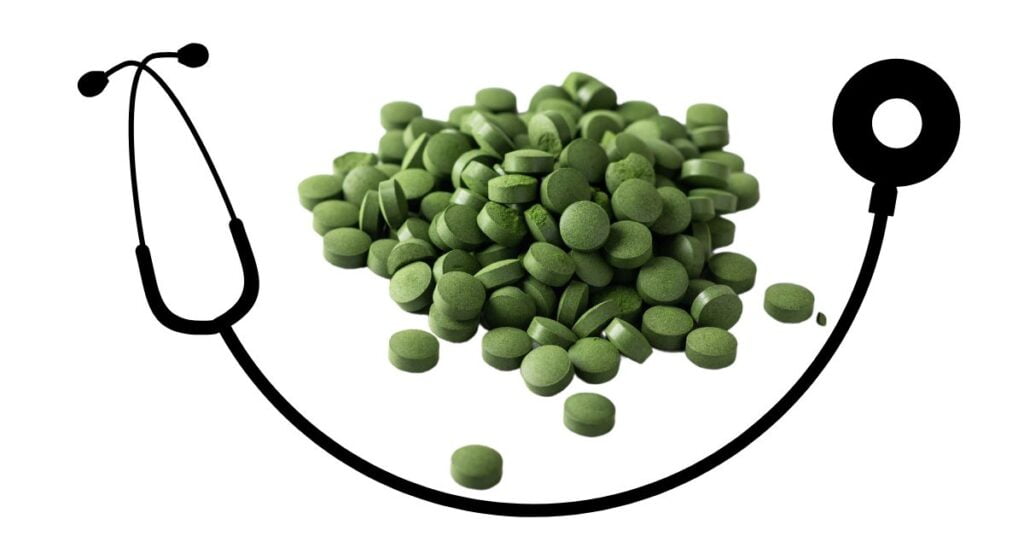
What Health Benefits Does chlorophyll Provide?
Chlorophyll has been shown to have potential health benefits, including antioxidant and anti-inflammatory effects, wound healing, and potential cancer-fighting properties. It is also thought to aid in detoxification, reduce body odor and bad breath, and promote healthy digestion. While more research is needed to fully understand its potential benefits, chlorophyll is often consumed as a diet supplement and added to cosmetic and oral care products for its natural color and potential health effects.
Chlorella Usage and Safety
Chlorella is generally considered safe for most people when consumed in appropriate amounts. However, some people may experience digestive issues, such as bloating and diarrhea, when taking chlorella supplements. Chlorella may also interact with certain medications, so it is important to consult with a healthcare provider before taking it. Additionally, because chlorella products can accumulate heavy metals from water, at many health food stores it is important to choose a reputable source of chlorella supplements to ensure they are free from contaminants.
Chlorophyll Usage and Safety
Chlorophyll is generally recognized as safe when consumed in appropriate amounts. However, high doses of chlorophyll may cause gastrointestinal upset and diarrhea in some people. Chlorophyll supplements may also interact with certain medications, so it is important to consult with a healthcare provider before taking them.
In addition, because chlorophyll can interfere with the absorption of certain nutrients, such trace minerals such as calcium and iron, it is important to take supplements under the guidance of a healthcare professional. Topical application of chlorophyll has also been shown to be safe and effective in wound healing and may have potential as a natural food coloring.
What’s the Main Difference Between Chlorella and Chlorophyll?
The main difference between chlorella and natural chlorophyll, is that chlorella is a type of freshwater algae that is a rich source of nutrients and is consumed as a diet supplement, while chlorophyll is a green pigments found in plants, algae, and cyanobacteria that is essential for photosynthesis and has potential health benefits as a diet supplement and natural food coloring. While chlorella contains chlorophyll, they are two distinct substances with different properties and functions.
Is chlorella better than liquid chlorophyll?
It is difficult to compare the effectiveness of chlorella powder and liquid extracts of chlorophyll since they have different properties and functions. Both substances have potential health benefits and are consumed as dietary supplements, but the best option depends on individual needs and preferences. It is recommended to consult with a healthcare professional before taking any supplements.
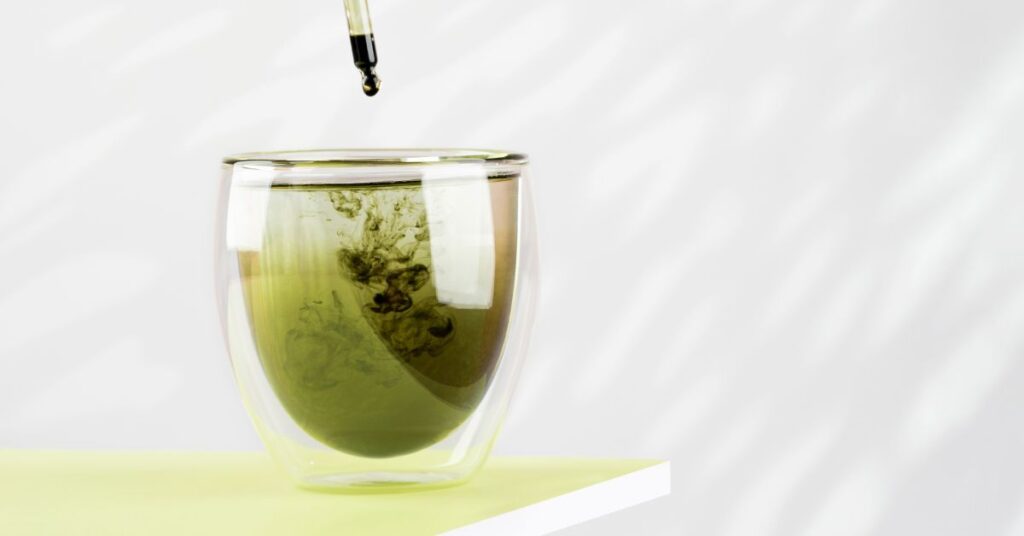
Can you take chlorophyll and chlorella at the same time?
Yes, it is safe to take both chlorophyll and chlorella at the same time, as they are two distinct substances with different properties and functions. Both substances have potential health benefits and can be consumed as dietary supplements, but it is important to follow dosage instructions and consult with a healthcare professional before taking any supplements, especially if you are taking medication or have a medical condition.
Chlorella and Spirulina Are Same?
No, chlorella and spirulina are not the same. They are both types of freshwater algae that are consumed as dietary supplements, but they have different properties and nutritional profiles. Chlorella is a single-cell algae that is high in chlorophyll, while spirulina is a multi-cell algae that is high in protein and other nutrients.
Does chlorella have chlorophyll?
Yes, chlorella contains chlorophyll, which is responsible for its green color. Chlorella is known to have a high content of chlorophyll, which is a natural detoxifier and may have potential health benefits.
Who should not take chlorella?
People with certain medical conditions, such health conditions such as autoimmune disorders, phenylketonuria (PKU), or allergies to iodine or other algae supplements, should avoid taking chlorella supplements. Additionally, pregnant or breastfeeding women, as well as children, should consult with a healthcare professional before taking chlorella.
Which has more chlorophyll spirulina or chlorella?
Chlorella has a higher content of chlorophyll compared to spirulina. Chlorella is known to have a chlorophyll content of about 2-3%, which is one of the highest levels found in any plant-based food source. In contrast as much chlorophyll, spirulina has a chlorophyll content of about 1%, which is still considered high. The high content of chlorophyll in chlorella is one of the reasons why it is often promoted as a natural detoxifier and has potential health benefits. However, it is important to note that both spirulina and chlorella have different nutritional profiles and can offer different health benefits when consumed as part of a balanced diet.
Are chlorella or chlorophyll related to blue green algae?
Yes, chlorella and chlorophyll are related, also known as cyanobacteria. Its a type of bacteria that can perform photosynthesis and produce oxygen, similar to plants. Chlorella and spirulina are both types of freshwater algae that are classified as blue or green algae, and chlorophyll is a green pigments found in plants, algae, and cyanobacteria that is essential for photosynthesis.
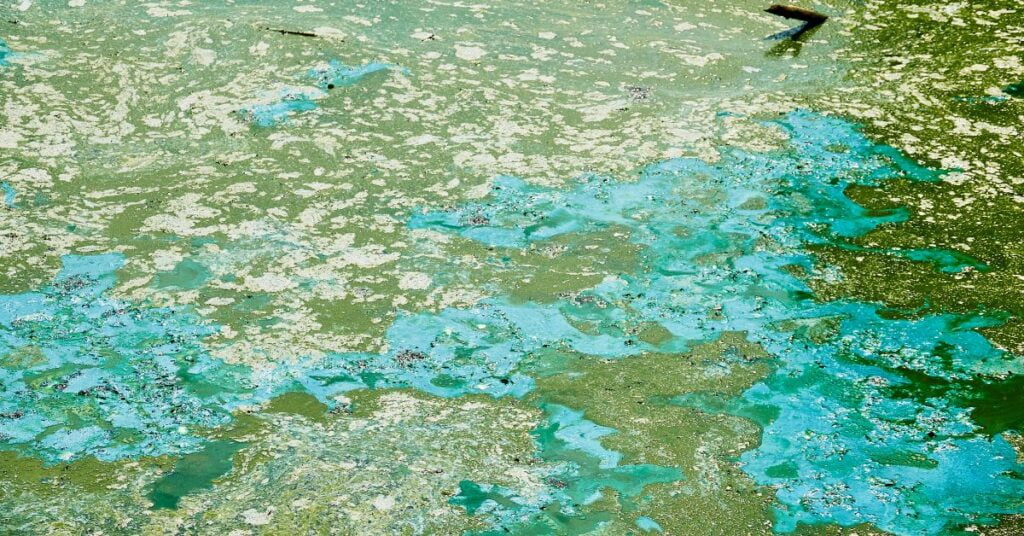
What Other Algae Can Substitute for Chlorella Supplements?
There are several types of algae that can be used as a substitute for chlorella supplements. Spirulina is a popular alternative, which is also high in protein and contains other nutrients such as vitamins and minerals. Other options include blue-green algaes like Aphanizomenon flos-aquae (AFA), which is known for its high content of bioavailable nutrients, and red marine algae like dulse and nori, which are often used in cooking and can be a good source of minerals like iron and iodine. However, it is important to note that each type of algae has a unique nutritional profile, so it is important to choose a supplement that meets your individual needs.
Do chlorella & chlorophyll contain vitamin c?
Chlorella and chlorophyll do not contain significant amounts of vitamin C. While both chlorella and chlorophyll are rich in other vitamins and minerals, such as vitamins B and K, iron, and magnesium, they are not a good source of C. If you are looking to boost your vitamin C intake, it is recommended to consume foods that are high in this nutrient, such whole foods such as citrus fruits, bell peppers, and leafy greens.
Spirulina VS Chlorella, Which One Should You Take?
FAQs
What is another name for chlorella?
Another name for chlorella is Chlorella pyrenoidosa.
Are there any interactions between chlorella/chlorophyll and medications?
Chlorella and chlorophyll may interact with some medications, such as blood thinners and immunosuppressants. It is important to consult a healthcare professional before taking chlorella or chlorophyll if you are taking any medications.
Does chlorella clean liver?
Studies suggest that chlorella can help support liver function and may have detoxifying effects, potentially reducing the accumulation of toxins in the liver.
Conclusion
Chlorella and chlorophyll are two terms that are often used interchangeably, but they are different in several ways. Chlorella is a type of freshwater algae that is known for its detoxifying properties and rich nutrient content, while chlorophyll is a green pigments that has powerful antioxidant and anti-inflammatory properties.
Both chlorella and chlorophyll are commonly consumed as dietary supplements and can be taken together for their complementary health benefits. However, it is important to follow the recommended dosage and consult a healthcare professional before taking these supplements.
